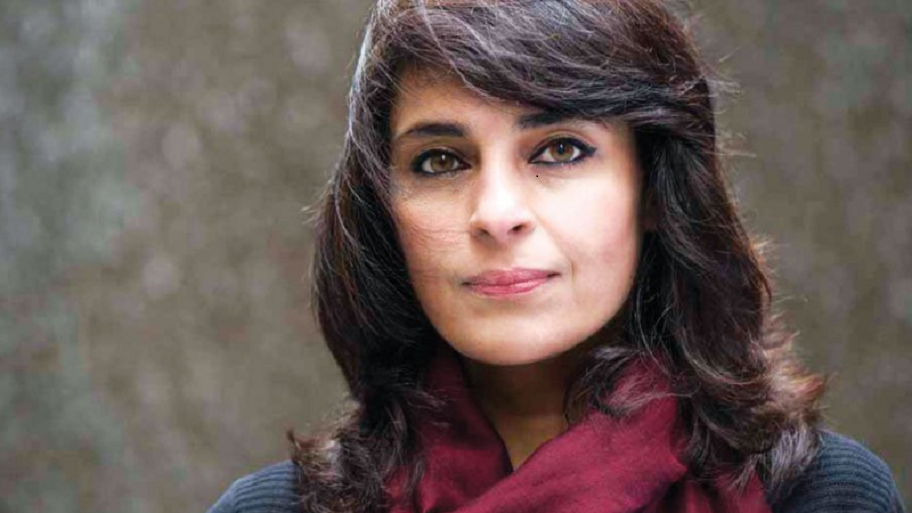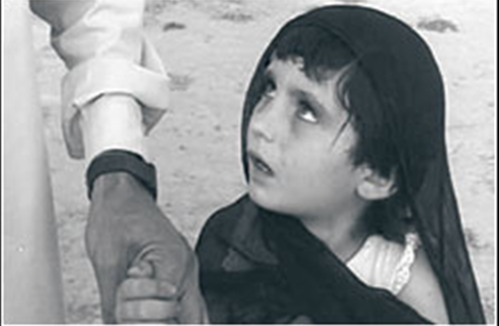Samar Minallah
This is a collection of articles archived for the excellence of their content. |
Samar Minallah
A saviour of souls
By Huma Khawar
“When my wife contracted Aids from me, I felt very guilty and helpless. Still, she forgave me,” says Wazir Khayal Baacha, who hails from the northern areas of Pakistan, in the documentary The Silver Lining directed by Samar Minallah.
The incident shows that married women are not necessarily safe from contracting HIV/Aids. The situation is dependant upon the knowledge and attitudes of the menfolk. Like Wazir’s wife, there are many who have had to pay dearly for their of ignorance. Based on a real story, the short documentary highlights the issue of HIV-positive people in Pakistan.
While losing his wife was a torment for Wazir, he soon discovered that he would lose his daughter to Aids as well as little Salma was also HIV-positive. “I could have given anything in this world to save my daughter,” says the woe-stricken father.
Samar Minallah emphasises that the main target of her media products are the people of the society to which she belongs and among whom she would like to bring about behavioural change with respect to issues of human rights. In order to do that her messages must respect local norms and sensitivities In the documentary, Samar focuses on the culture of silence and fear of stigma that kept two precious lives from getting medical help in this case. After having discovered that medical treatment has improved his quality of life, Wazir now builds bridges between ignorance and knowledge, “I tell people that treatment is available and beneficial, but first one must overcome fear and shame.”
The landscape of the western regions of Pakistan is such that it offers limited economic opportunities. As a result, a huge workforce from this region is employed in the Gulf States. Migrant workers spending long periods away from home and family makes them a high risk group of contracting HIV.
“The biggest group that we see these days are those who are being deported from the Gulf States,” says Dr Rizwan Qazi, Physician/ Incharge of HIV Treatment Centre at the Pakistan Institute of Medical Sciences (PIMS).
According to him, the most important message remains that Aids is preventable. It has been seen that education works as a vaccine for HIV. You inform, you educate, and you create awareness. That is the only way you create an enabling environment and stop the epidemic.
For Wazir at least, the road ahead is full of hope. “In my opinion, saving other people’s lives is a form of jihad. Had I been made aware, my family would still be alive. Now I want to save the lives of others.”
In this age of information, a film can be viewed by anyone living anywhere in the world and television shows through live web feeds are watched by a wider section of consumers than before.
For Samar Minallah, a young producer, the documentary was a part of the Young TV Producers Network in Asia on HIV and Aids project, in which young television producers were trained to take up issues related to HIV/Aids.
The Silver Lining was among the films screened at the Global Media Strategies HIV and Aids conference in Kaula Lumpur, Malaysia, last month. The conference, a part of the Asia Media Summit and focused on ways media can be more productive.
Samar, who holds a Masters degree in Philosophy (Social Anthropology and Development), believes that development initiatives must be culturally sensitive. Samars another documentary film, Swara: A Bridge Over Troubled Waters, not only succeeded in raising awareness about the issue at the national level, it also brought the word ‘swara’ into common usage.
The purpose of the Pushto documentary was to bring the voices of Pukhtun women who had been the victims of a custom in which girls are given away in marriage for a crime, most commonly involving murder, committed by their fathers, brothers or uncles. The perpetrator, of the crime, however is pardoned. Thus, the dispute is solved. However, the criminal goes free and an innocent girl is condemned to pay the price for someone else’s crime for the rest of her life.
Samar Minallah has brought to the attention of the public and policy/ decision-makers the fact that the inhuman custom continues unabated in many parts of Pakistan. Though un-Islamic and illegal, it takes precedence over local jurisprudence and are backed by some politicians who do not wish to upset their constituents. She has taken many cases as far as the Supreme Court of Pakistan of girls from different parts of the country given as compensation have been averted. She feels her lifelong mission is to root out the custom of Swara.
She emphasises that the main target of her media products are the people of the society to which she belongs and among whom she would like to bring about behavioural change with respect to issues of human rights. In order to do that her messages must respect local norms and sensitivities. On June 6, 2007, in recognition for her outstanding contributions Samar Minallah became the first Pakistani to receive the 2007 Perdita Huston Activist for Human Rights Award at a ceremony held in Washington, D.C.
YEAR-WISE DEVELOPMENTS
2021
08 Dec, 2021
Pakistani filmmaker Samar Minallah Khan won Best Short Film for her film Out Swing at the 7th Sport Film Festival Rotterdam in the Netherlands. The win was announced on Twitter where the film creator was lauded for her work.



